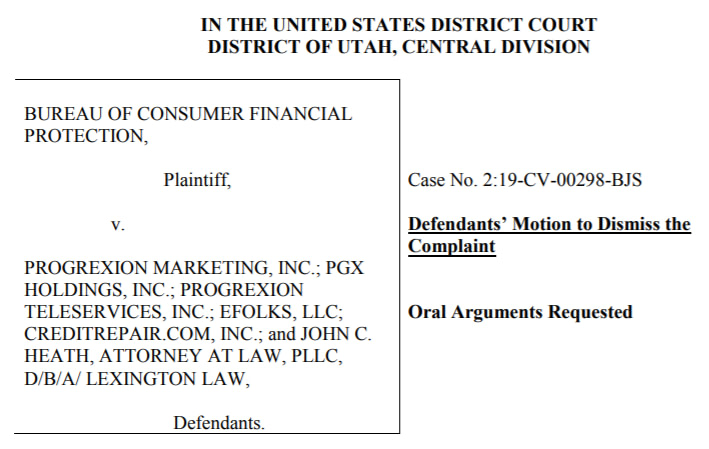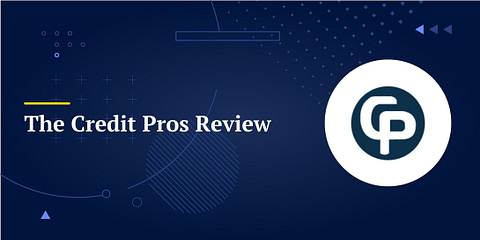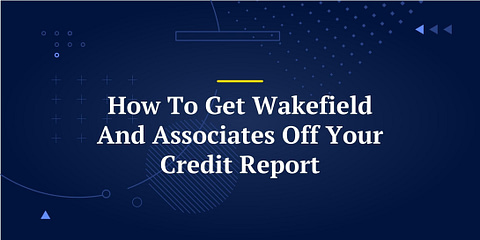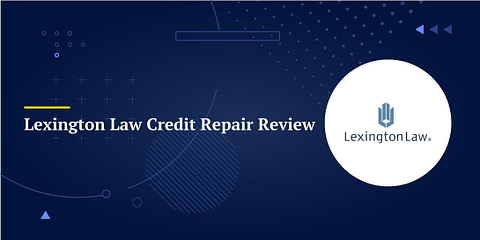In May 2019, the Consumer Financial Protection Bureau (CFPB) filed a major lawsuit against Lexington Law, one of America’s largest credit repair services. The lawsuit claimed that Lexington Law employed deceptive marketing practices and violated consumer protection laws.
Let’s look at the details.
Key Takeaways
- Lexington Law was accused of deceptive marketing. Lexington Law representatives posed as lenders and urged people to repair their credit to qualify for loans, among other practices.
- The case will affect the entire credit repair industry. Other credit repair companies will have to change their practices to avoid similar actions.
- The case was resolved in August 2023. The court imposed a $2.7 billion judgment and over $64 million in civil penalties against Lexington Law and its partner companies.
Update: May 2022
The CFPB’s lawsuit against Lexington Law has progressed at a slow pace.
- Lexington Law filed a Motion for Partial Summary Judgment on August 20, 2021. The Motion claimed that the TSR does not apply to Lexington’s services and that the CFPBs interpretation of the TSR is an unconstitutional restraint on free speech.
- On Nov 15, 2021, the CFPB responded, claiming that the TSR does clearly apply, that the use of the term “credit repair” is an implied promise to improve the customer’s credit and that the TSR regulates actions, not speech.
- The CFPB filed a Motion for Partial Summary Judgment on Dec. 10, 2021, pointing out what it claimed were clear violations of the TSR.
- Lexington replied on Dec. 30, claiming that they do not promise a specific result and are thus exempt from the rule. They also denied that Lexington is a telemarketer, as all marketing calls were made by a marketing affiliate, not by Lexington.
- The CFPB replied on Jan 18, repeating its allegations.
The issue is now with the court, and we can expect further exchanges and court proceedings before it is resolved.
The impact of this case will go far beyond Lexington Law. Some of the practices that the CFPB states are illegal are widespread in the credit repair industry (like charging upfront fees), and if the court finds against Lexington Law, the industry will have to make fundamental changes in the way it operates.
An article from the Credit Repair Lawyers of America goes as far as to state that “This case will provide a definitive direction for paid credit repair or it will tank the industry.”
Stay tuned for updates as the case proceeds!
Update 2: April 2023
On April 18, 2023, reports stated that the CFPB had filed a motion with the court seeking a $3.1 billion judgment against defendants Lexington Law and CreditRepair.com on behalf of consumers. The filing states:
“Between March 8, 2016, and March 31, 2023, defendants took approximately $3.1 billion from more than four million consumers in violation of the Telemarketing Sales Rule,” the CFPB wrote in its motion.
“The time has come for defendants to return that money to the consumers they unlawfully charged, cease their illegal billing practices, and pay penalties for their misconduct.”
Update 3: Resolution
On August 28, 2023, the CFPB announced that it had entered into a proposed settlement with Lexington Law. The settlement will have to be approved by the court.
The settlement imposes a $2.7 billion judgment and over $64 million in civil penalties against Lexington Law and its partner companies. The group behind Lexington Law is also banned from any telemarketing activities for 10 years.
Lexington Law has filed for Chapter 11 bankruptcy protection, laid off 900 employees, and shut down 80% of its operations. It is not clear how much of the fine will be paid or whether Lexington Law, CreditRepair.com, and their related companies will remain in business.
Complaint Recap: CFPB Vs. Lexington Law
If you are not familiar with the deceptive marketing allegations against Lexington Law, let me give you a quick recap. Or you can read a more extensive Lexington Law Review that goes into much greater detail for each allegation.
The Consumer Financial Protection Bureau (CFPB) alleged that Lexington Law paid third parties to find customers for them. One of these ‘Affiliates’ or ‘Introducers,’ who is referred to as HSP1 in the complaint, advertised for “rent to own homes” and home loans for people with bad credit. However, they did not have any homes to rent or any money to loan.
When wannabe homeowners would call HSP1, they were told that they did not qualify for a loan because of bad credit (without a credit report being run). Consumers were told that if they signed up for Lexington Law credit repair services, they would qualify for a (non-existent) home loan with HSB1 in the near future.
CFPB laid out multiple allegations of employees and executives at Lexington Law possibly actively helping HSB1 further their deceptive marketing practices or at the least actively turning a blind eye.
The Problem With The CFPB Complaint
Lexington Law has hired an expensive group of lawyers to take on the Consumer Financial Protection Bureau. Those lawyers took one look at the complaint against their client and rolled their eyes.
While I think with an amended complaint some of these charges may stick or induce a settlement, the original complaint is kind of a mess. The motion to dismiss filed by Lexington Law argues that the ‘allegations of deception are too vague to support relief.’
Notably, whatever the truth or falsity of the Complaint, CFPB does not complain in the slightest about how any of the Defendants, particularly Lexington Law and CreditReport.com, treated those consumers referred for credit repair help. In any event, as explained below, these fraud claims cannot be sustained against any party here—CFPB did not join (or, sue) HSP1— under either Rule 8 or Rule 9(b). Defendants are not alleged to have made any deceptive statements, only one introducer (HSP1) is the subject of any specific allegations, and all of the allegations of deception are too vague to support relief.
The actual complaint is against multiple companies including Lexington Law (who is actually a DBA). Strangely, each of the charges in the complaint is made against the group as a whole, much like a blanket. However, the law does not work like that, each company is a separate entity, and each charge will have to be explicitly proven against each entity.

In fact, one of the companies listed in the complaint is never mentioned in any of the charges or supporting facts for the charges. Fortunately, in America, you can’t be convicted just for the company you keep. The facts have to prove you were involved and did something wrong, and the CFPB complaint fails to lay out each entity’s role in the violations. Consequently, the Lexington Law legal team has filed a motion for oral arguments for the purposes of the charges being dismissed.
What Lexington Law Said By Saying Nothing At All
In regards to the count that Lexington Law charged fees for services that had not been rendered, they simply denied the charge. However, in a 42-page motion for dismissal, Lexington Law does not deny the charges of deceptive marketing practices or any of the other consumer-described abuses. The entire motion is focused on legal maneuvering and lawyering to force CFPB to clean up this complaint and drop the unsupported charges.
While I understand that this motion to dismiss is not an admission of the facts, it is not uncommon for these sorts of motions to include a blanket denial of the charges, so people like me don’t overly read into the motion. Lexington Law seems to argue, ‘So what? Even if this stuff happened, your complaint doesn’t properly allege that Lexington Law did anything LEGALLY wrong.’ And there is a big difference between legally wrong and ethically wrong…

























Theses sorry as snakes they will rot in hell I was I jail and they was taking over 900 dollars from me and I still never seen my credit fixed and I call and ask them to put some of my money Bach and they tell me it ain’t happening that I knew what I was signing up for well no I thought it was a one time deal not break my fuckin bank I am living on the streets because of these people but I am sure they are at home all warm with the electric bill paid by people like you and me
I WAS WITH Lexington LAW FIRM 2011-2012 to 2016 and never had the oppportunity or was able to get house that they told me l was going to be to buy l paid them $99 monthiy direct deposit came out of my social security disability check banking account and .